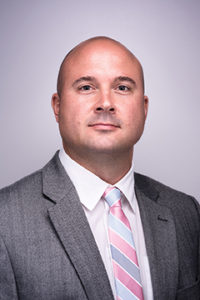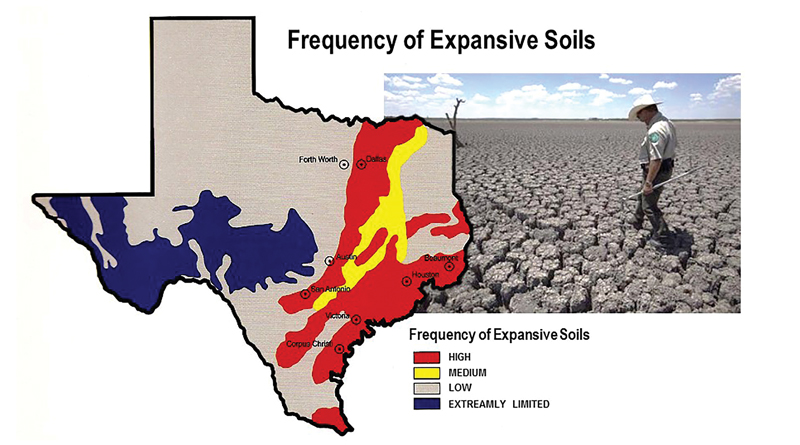Sustainable Justice Design Takes Hold in Texas
By David Swies
The Texas county jail, law enforcement center and sheriff’s office project list is expanding about as fast as the Austin to San Antonio corridor population growth.
Projects in Lampasas, Travis, Hays, Kendall, Comal, Bexar, Kerr and Bee counties are currently in different planning, programming, design and construction stages. Although these projects range in size and complexity, the one commonality between all of them is the discussion about implementing innovative sustainable design techniques to provide local owners the best value for their approved bond packages or reserve funds.
The industry focus and discussion continues to be about overcoming the depleting skilled trade craft market, the loss of millennial talent and future leaders to other competing industries, and corrections industry subcontractor and supplier consolidation. Additional discussion revolves around how the industry will challenge the status quo and encourage our project teams to continue to think outside the box.

As a former general contractor and subcontractor, and as a current owner-advocate, the use of innovative sustainable design techniques and challenging the status quo has been a passion and business model over my 17-year-plus career. Furthermore, as our industry continues to challenge our ability to adapt and maintain business model flexibility, innovative sustainable design solutions have continued to present themselves for our research, due diligence and potential implementation into our correctional project designs.
For instance, steel pre-fabrication has been around for almost two decades in our corrections industry. However, Texas has been void of this innovative sustainable design solution until recently with the “all-at-once” influx of projects that have hit the Austin to San Antonio corridor.
In a May 2017 Forbes Magazine article, the Austin to San Antonio corridor was dubbed the “Central Texas Innovation Corridor” with 12 of the Top 300 mid-size to large employers headquartered in this corridor. These Top 12 include Rackspace (No. 2), USAA (No. 5), NXP Semiconductors (No. 269) and Dell Semiconductors & Electronics (No. 292), to name a few.
Add the recently opened Amazon distribution center in San Marcos and Urban Mining Company’s (UMC) recent selection of San Marcos for its new rare earth magnet manufacturing facility and headquarters, and that’s two more innovative powerhouses moving significant operations to this exploding corridor.
Steel pre-fabrication has been discussed as a means of sustainable innovative design options for most every Austin to San Antonio corridor correctional project mentioned above. Although the final decision has not been made on whether steel pre-fabrication will ultimately be selected as the design of choice, the conversations up and down the corridor have been nothing but intrigue and excitement behind what long-term impact sustainable innovative design products such as steel pre-fabrication could have on our corridor’s ability to draw best-in-class millennial talent back to our construction industry.
If steel pre-fabrication is not enough of a sustainable innovative design discussion topic, our Austin to San Antonio corridor offers up some of the most expansive clay soils in the country. Lucky us, for those in the clay pottery business, and definitely unlucky if you happen to be in the construction business. (The featured state graphic shows frequency of expansive soils.)
Although our corridor is blessed to have one of the hottest building markets in the county, our corridor is also blessed to have one of the highest frequency of expansive soils in the country. Most of the Texas counties that are currently progressing their jail, law enforcement and sheriff’s office designs toward construction are discussing this very real concern.
What was typically dealt with by potential soil remediation or chemical treatment or costly and complex suspended foundations with carton form void box designs has now been replaced by using standard structural engineering design calculations in a sustainable innovative product technology called Tella Firma Foundations (TF). TF is based out of Richardson, Texas and has been installing its patented alternate foundation system technology throughout Texas since 2011. With a potential savings of 20 to 25 percent on commercial foundation bid packages, TF has become a potential win-win, long-term solution for owners all across Texas.
Finally, with Texas requiring non-contact in-person (NCIP) visitation at all of its detention facilities regardless of whether the design includes video visitation capabilities, it has required current Austin to San Antonio corridor correctional facility project teams to take a second look as to whether video visitation is a necessary expense to their local taxpayers.
Coupling this Texas state law requirement with the recent passing of the Sandra Bland Act by Texas Governor Greg Abbott in June 2017, according to the Texas Tribune, the impact of NCIP and video visitation on inmates, especially inmates with behavioral health challenges, should continue to be a top discussion topic during facility planning, programming and design.
Most recently at the July 2017 Texas sheriffs’ association conference held in Grapevine, sheriff’s office executive leadership was introduced to a sustainable innovative remote video visitation technology from several different national companies. One of these remote video visitation companies was Decatur, Ala.-based iWebVisit.
Remote video visitation was introduced to the corrections industry several years ago and has continued to transform inmates’ and their families’ abilities to connect and communicate in a more comfortable environment, especially for inmates’ children and elderly family members. The cost savings alone to not travel to and from a facility is worth further discussion. However, when you couple cost savings with a positive mental health environment, how can anyone argue against this technology?
The industry concerns about secure remote video visitation, enhanced visitation monitoring and accountable customer service are all valid, but just like any technology, actively listening to these concerns and implementing sustainable innovative technological and operational advances continues to improve the remote video visitation experience for the state and local law enforcement agencies, inmates and their families. As the late Steve Jobs established as the head of Apple, “Think Different.”
I challenge all of us leaders in the corrections industry to do just that. Challenging the status quo and continuing to think outside the box is gaining momentum across our nation. It still may be somewhat unorthodox for most, but delivering on our promises to be more consistent, transparent and accountable should allow us all to get past our fear of change.
David Swies is a senior project manager at Austin, Texas-based Broaddus Companies.

